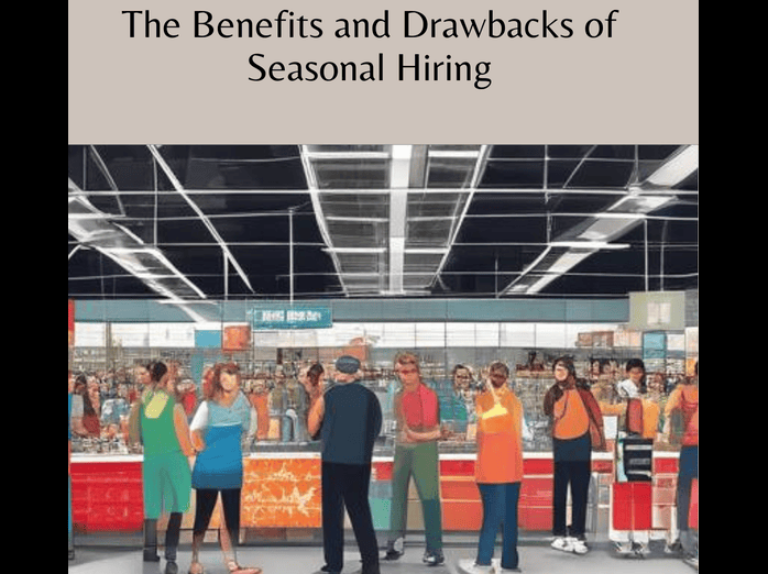The Pros and Cons of Seasonal Hiring

Temporary work is a term whereby companies hire employees on a temporary basis with the different seasonal demands. This is incredibly true in retail during the holiday rush, in agriculture during harvesting, and in travel during high periods.
They're mostly used in companies to help keep operations running without tying the firm up in long-term obligations of full-time employment.
The Spectrum of Seasonal Hiring: Industries in Focus
From retail to logistics, several sectors benefit from the wave of seasonal hiring:
1. Retail: A surge in demand during the holiday and back-to-school periods.
2. Hospitality & Tourism: As travel peaks, hotels, resorts, and restaurants need more hands on deck.
3. Agriculture: Additional help is needed during the harvesting seasons.
4. Logistics & E-commerce: Peak shopping seasons like Black Friday call for additional support.
5. Event Management: Temporary staffing is crucial for large-scale festivals, concerts, and sporting events.
The Upside: Five Benefits of Seasonal Hiring
- Efficient Workforce Management: Seasonal hiring allows businesses to control labor costs effectively. They can adjust their workforce according to demand, avoiding unnecessary payroll costs during slow periods.
- Accelerated Hiring Process: The hiring cycle for seasonal positions is typically shorter, making it easier to fill roles swiftly.
- Enhanced Productivity: Extra hands on deck during peak periods ensure businesses meet high demand without overwhelming permanent staff—maintaining service quality and customer satisfaction.
- Potential Full-Time Hires: Seasonal hiring acts as a probation period. Top-performing seasonal workers might land permanent roles, reducing future hiring risks.
- Workforce Planning Flexibility: Businesses adjust staffing to seasonal hiring models in order to maintain optimum performance and integrity beyond the long-term bounds of an industrial union.
The Downside: Five Drawbacks of Seasonal Hiring
1. High Attrition: Seasonal workers often view these roles as temporary, leading to high turnover. Businesses might need to invest more in recruitment and training.
2. Limited Engagement: Since they are here for the short haul, one should not very much expect seasonal employees to be enthusiastic about their work so that one does not compromise motivation and diminish engagement
3.Training Expenses & Challenges: Attracting competent workers, however, is a distant goal, which contrasts severely with the modern conception of human resource management..
4. Variable Work Quality: It is expected that seasonal employees will exhibit lower virtuosity and/or commitment in comparison to normal regular team members, which will have an impact on the work quality and customer experience.
5. Legal Complications: Managing seasonal employees needs careful attention to labor laws, contracts, and benefits compliance, adding to administrative complexity.
In Retrospect: Seasonal Hiring as a Strategic Move
Seasonal hiring can be a strategic tool for businesses with changing workforce needs. While it provides cost savings, flexibility, and increased productivity, it also brings challenges like high turnover and training costs. By thoughtfully weighing these pros and cons, companies can formulate an efficient seasonal hiring strategy, maximizing gains while limiting risks.
Contact HRInc for more details
Popular Tags : Top Recruitment Agency, Professional Recruitment Agency | IT Recruiting Services


